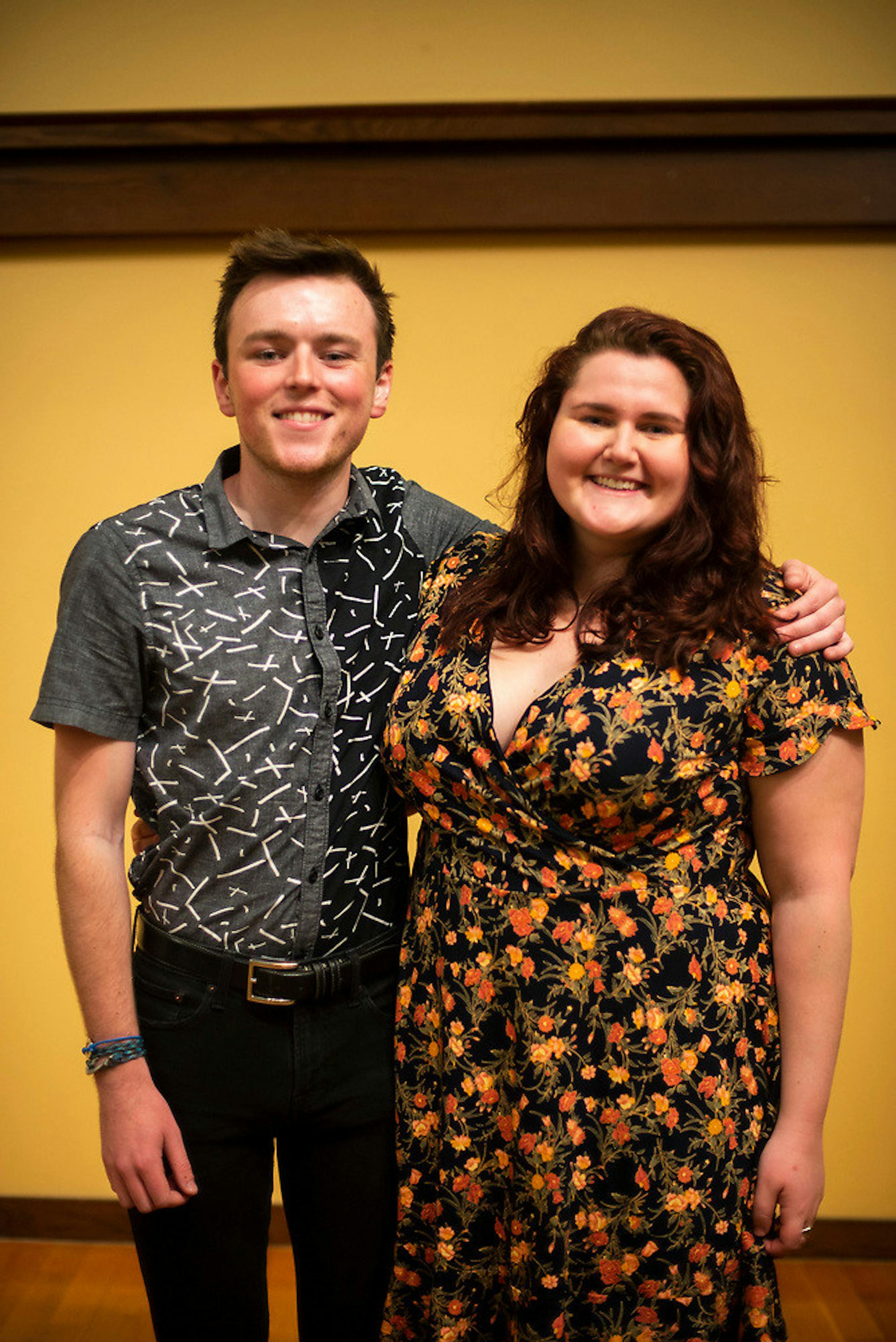Content warning: This article discusses suicide and self-harm.
Active Minds at Tufts presented its annual event, Mental Health Monologues: Strength in Stories, on Tuesday night, during which 20 students presented monologues written by either themselves or other Tufts students for whom they had volunteered to read.
The monologues depicted struggling with various mental health issues, including anxiety and depression, but all were stories of survival and persistence. The program contained content warnings for some of the monologues on more sensitive topics such as suicide and self-harm.
The main goal of the event was to create a safe space for those who wished to share their own stories of mental health and for those who came to listen and support, according to Co-President of Active MindsBri Pastro. After the event, a reception in the Interfaith Center extended the conversation about the monologues that had been presented.
Mental Health Monologues was created by former Co-Presidents Danielle Mulligan (LA '17) and Kari McNeil (LA '18), according to Pastro, a senior.
“This was their little brainchild, and they ... set the format that we continue to use now ... They had been to events likeIt Happens Here and seen how powerful it was and really wanted to create a space where people can share their stories about mental health,” Pastro said.
Pastro and fellow Co-President Will Hodge, a senior, played a large role in orchestrating the monologues this year.
According to Pastro, preparation for the event usually begins around the beginning of the spring semester. To participate in the monologues, Pastro said Active Minds sends out a Google form about a month in advance, where people can specify if they want to read or write for the event.
Pastro explained that people who submit a monologue can specify whether they would like to read their story or have someone else read it, and the author of the monologue is not disclosed during the reading.
Pastro said readers are chosen with a purpose, and the number of applications changes annually.
“A lot of times, who gets paired with which monologue has to do with identities that the author might request ... They might request someone who matches with their sexual or gender identities," Pastro said. "This year we had a little bit of trouble finding a couple of readers but it ended up being fine, but the year before we had tons of people that we had to turn away, so it can definitely vary."
Pastro and Hodge have both been members of Active Minds since they were first-years and have witnessed how the event has progressed with each year.
“It’s so different every single year, and intangibly so, in the sense that ... every story is individual and unique, but it’s so important," Hodge said. "[With] the ebb and flow of seniors as they graduate and [as first-years] are coming in, it’s really vital to capture the essence of each class."
The monologues serve as a platform for many members of Active Minds to share their own stories, as well as a way to empathize with and support others, according to McKenzie Schuyler, who attended the event.
“Mental Health Monologues is a really good way for the Tufts community to come together and support people they don’t know, and just be more aware of the things that your peers are going through," Schuyler, a sophomore, said. "Struggling with your mental health or just different types of things like family issues or academic issues, or whatever it may be, is a lot more common than people might think, and they’re not alone."
Pastro noted how the monologues as an annual event have allowed her to track her own mental health story and encouraged her to share her monologue this year.
"I’ve always felt it to be like a trust fall with the Tufts campus," Pastro said. "It’s like, 'I’m going to get up here and talk about this, and I’m going to close my eyes and jump, and you’re going to catch me.'”
Pastro said the event was important to her because of the culture of sharing that it creates on the Tufts campus.
“It’s okay to speak up. We value that, rather than wanting you to keep quiet about it, which is what we’re trying to get around," she said.
Hodge noted that the name of the event, Strength in Stories, is intentional and underlines the healing nature of telling stories.
“There really is something to be said about how cathartic and how monumental it is to share your own story, but also to be on the audience side, and to be inspired by others," Hodge said. "It’s so validating and so awesome to hear about all ... that other people have gone through, and how they’re still living and breathing and they’re here.”






